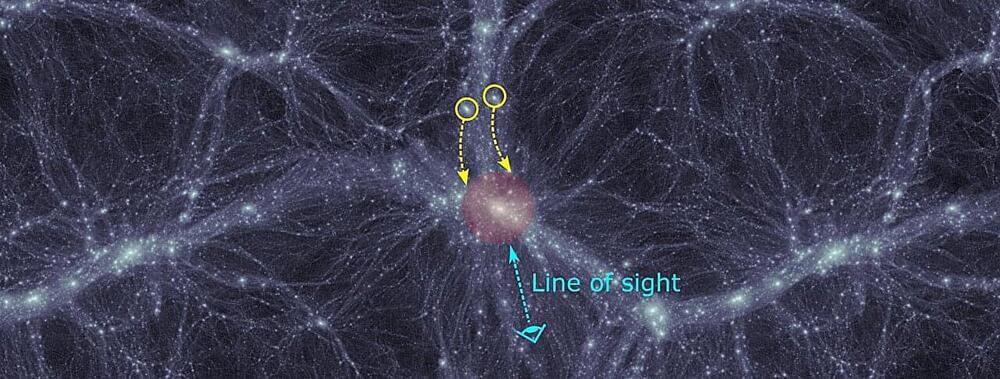In standard cosmological models, the formation of cosmological structures begins with the emergence of small structures, which subsequently undergo hierarchical merging, leading to the formation of larger systems. As the universe ages, massive galaxy groups and clusters, being the largest systems, tend to increase in mass and reach a more dynamically relaxed state.
The motions of satellite galaxies around these groups and clusters provide valuable insights into their assembly status. The observations of such motion offer crucial clues about the age of the universe.
By using public data from the Sloan Digital Sky Survey (SDSS), a research team led by Prof. Guo Qi from the National Astronomical Observatories of the Chinese Academy of Sciences (NAOC) analyzed the kinematics of satellite pairs around massive galaxy groups. The team’s findings suggest that the universe may be younger than predicted by the LCDM model with Planck cosmological parameters.









Comments are closed.